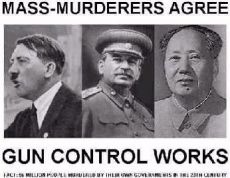Mussolini on Fascism: Who You Callin' a Fascist?
Wednesday, December 28, 2005
Back in September, I posted one of my finest posts ever - The 25 Points of Nazism: Who You Callin' a Nazi?. If you haven't read it, I strongly encourage you to do so. It's quite instructive.
I've noticed a lot of similar instances of conservatives being called "fascists". This kind of curiosity led me to Benito Mussolini's own treatise, What is Fascism (1932). The 'net is just chock full of information you can look up and get first-hand, so let's do another side-by-side comparison, just like we did in response to being called "Nazis" (Please note that Mussolini's definition of the word "Liberal" would be quite different from the definition we would use today. Mussolini's definition would more closely reflect that of our own Founding Fathers)...
Fascism, the more it considers and observes the future and the development of humanity quite apart from political considerations of the moment, believes neither in the possibility nor the utility of perpetual peace. It thus repudiates the doctrine of Pacifism -- born of a renunciation of the struggle and an act of cowardice in the face of sacrifice. War alone brings up to its highest tension all human energy and puts the stamp of nobility upon the peoples who have courage to meet it. All other trials are substitutes, which never really put men into the position where they have to make the great decision -- the alternative of life or death....Well, it has been demonstrated time and again that there will most likely never be perpetual peace, so the repudiation of Pacifism is a fair call. However, no conservative believes that "war alone" is the right way to go. We simply acknowledge that if we are going to be able to keep our freedom, blood will occasionally have to be spilled to that end. Due to the fact that conservatives would actually agree with some of this (i.e. acknowledging that there can be no perpetual state of peace), we'll put up a match on the conservative side.
...The Fascist accepts life and loves it, knowing nothing of and despising suicide: he rather conceives of life as duty and struggle and conquest, but above all for others -- those who are at hand and those who are far distant, contemporaries, and those who will come after...This is a very conservative position, by modern American standards. I don't think there'd be much argument about that. Conservatives 2, Liberals 0.
...Fascism [is] the complete opposite of ... Marxian Socialism, the materialist conception of history of human civilization can be explained simply through the conflict of interests among the various social groups and by the change and development in the means and instruments of production.... Fascism, now and always, believes in holiness and in heroism; that is to say, in actions influenced by no economic motive, direct or indirect. And if the economic conception of history be denied, according to which theory men are no more than puppets, carried to and fro by the waves of chance, while the real directing forces are quite out of their control, it follows that the existence of an unchangeable and unchanging class-war is also denied - the natural progeny of the economic conception of history. And above all Fascism denies that class-war can be the preponderant force in the transformation of society...This is simply a statement that Mussolini believes that, from an economic standpoint, his ideology is the opposite of Socialism. Strangely, he also decries capitalism here as well. Due to the anti-socialist nature of the statement, I'll place it in the conservative column, with reservations. Conservatives 3, Liberals 0.
After Socialism, Fascism combats the whole complex system of democratic ideology, and repudiates it, whether in its theoretical premises or in its practical application. Fascism denies that the majority, by the simple fact that it is a majority, can direct human society; it denies that numbers alone can govern by means of a periodical consultation, and it affirms the immutable, beneficial, and fruitful inequality of mankind, which can never be permanently leveled through the mere operation of a mechanical process such as universal suffrage....I don't think an honest American of any stripe would buy this. However, the penchant of liberals to use the courts to usurp the Constitution and the will of the people places this one in the liberal column. Conservatives 3, Liberals 1.
...Fascism denies, in democracy, the absur[d] conventional untruth of political equality dressed out in the garb of collective irresponsibility, and the myth of "happiness" and indefinite progress....Damned if this doesn't sound like Jesse Jackson or Al Sharpton. Conservatives 3, Liberals 2.
...(G)iven that the nineteenth century was the century of Socialism, of Liberalism, and of Democracy, it does not necessarily follow that the twentieth century must also be a century of Socialism, Liberalism and Democracy: political doctrines pass, but humanity remains, and it may rather be expected that this will be a century of authority...a century of Fascism. For if the nineteenth century was a century of individualism it may be expected that this will be the century of collectivism and hence the century of the State....A century of collectivism and of the State?? Dudes, it's 3 apiece.
The foundation of Fascism is the conception of the State, its character, its duty, and its aim. Fascism conceives of the State as an absolute, in comparison with which all individuals or groups are relative, only to be conceived of in their relation to the State. The conception of the Liberal State is not that of a directing force, guiding the play and development, both material and spiritual, of a collective body, but merely a force limited to the function of recording results: on the other hand, the Fascist State is itself conscious and has itself a will and a personality -- thus it may be called the "ethic" State....The State as an "absolute"? Only in Teddy Kennedy's America. Liberals 4, Conservatives 3.
...The Fascist State organizes the nation, but leaves a sufficient margin of liberty to the individual; the latter is deprived of all useless and possibly harmful freedom, but retains what is essential; the deciding power in this question cannot be the individual, but the State alone...."Useless and possibly harmless freedom"? The State alone, instead of the individual, is the deciding power with regard to what freedoms people have? Liberals 5, Conservatives 3.
...For Fascism, the growth of empire, that is to say the expansion of the nation, is an essential manifestation of vitality, and its opposite a sign of decadence. Peoples which are rising, or rising again after a period of decadence, are always imperialist; and renunciation is a sign of decay and of death. Fascism is the doctrine best adapted to represent the tendencies and the aspirations of a people, like the people of Italy, who are rising again after many centuries of abasement and foreign servitude.OK, I'm splitting this quote for two reasons - 1. It's dreadfully long, and 2. There are two completely different points being made here by Mussolini.
The first portion suggests that it is normal and healthy for a nation of people to want to force its way of life on others. Many people mistakenly subscribe to the notion that the American Right is of this mindset. In fact, nothing could be less true. American conservatives believe, as did our Founding Fathers, that it is the natural state of human existence to yearn for freedom. Any nation forced to live under the sorts of conditions advocated here by Mussolini would be right to throw them off. In the case of the War on Terror, conservatives largely support efforts to bring freedom to oppressed nations, particularly those with regimes hostile to the US and friendly to the terrorists. Conservatives do NOT advocate imposing the US Constitution on these people, but rather guiding these people in making their own decisions and reaching their own compromises. We seek free people as allies not only in the War on Terror, but in our respective economies as well. Free people always outperform the oppressed. This is a fundamental difference in the opinions of American liberals and conservatives. While conservatives believe in the ability of individuals to use freedom wisely and for maximum benefit to themselves and others, liberals see people as groups, and work to protect people from themselves by limiting their freedom. This applies both with regard to everyday living and with regard to economics. Since the people being liberated were in the state of existence that liberals believe is natural, they believe there wasn't anything to liberate them from. I imagine a large number of Afghans and Iraqis might disagree.
On to the second portion of the quote ...
But empire demands discipline, the coordination of all forces and a deeply felt sense of duty and sacrifice: this fact explains many aspects of the practical working of the regime, the character of many forces in the State, and the necessarily severe measures which must be taken against those who would oppose this spontaneous and inevitable movement of Italy in the twentieth century, and would oppose it by recalling the outworn ideology of the nineteenth century - repudiated wheresoever there has been the courage to undertake great experiments of social and political transformation; for never before has the nation stood more in need of authority, of direction and order. If every age has its own characteristic doctrine, there are a thousand signs which point to Fascism as the characteristic doctrine of our time. For if a doctrine must be a living thing, this is proved by the fact that Fascism has created a living faith; and that this faith is very powerful in the minds of men is demonstrated by those who have suffered and died for it.Mussolini's missing the point here. ANY successful nation requires discipline and sacrifice, not just those with imperial aspirations. Furthermore, Mussolini advocates a Clintonesque squelching and/or silencing of anyone oppsed to his way of thinking, particularly those who would stand up for the principles that had been successful in the past.
America has been at her most successful when those who oppose her leaders are freely heard. Weird Howard and the Sheehag are playing a very important role in the success of America today, particularly in the success of conservatives and in the case of the latter, in the success of the War on Terror.
There does exist a liberal match here, in the position that "social transformation" ought to be the order of the day, and anyone opposing their position should be decried as a "Nazi" or a "Fascist".
Still, the liberals match on 6 out of 9 points considered, or 66% of this platform. Conservatives match on 3 out of 9, or 37% (also consider the reservations noted on two of them). Again, the American Left, twice as fascist as the Right, tries to create the illusion that conservatives are "fascists". Furthermore, the three points upon which conservatives would agree all come in the very beginning of the treatise, which would indicate that Mussolini would have been trying to put his "best foot forward" in trying to sell his point.
Does this come as a surprise? Of course not. The percentages on Nazism were even more in the libs' camp (Libs 17 out of 25 - 68%, Conservatives 3 out of 25 - 12%), and they love calling us Nazis.
The most interesting point is that you virtually NEVER hear a conservative levelling charges of Fascism, Nazism, or even socialism (well, you DO hear that one from me) at a liberal. Sorry guys, calling Robert Byrd a racist is fully substantiated by his prior membership in the Ku Klux Klan (without subsequent denouncing of their ideas), and his public use of bigoted racial slurs since then.
I would be satisfied with more charges of socialism/communism levelled at those who advocate those positions, only when true. These unsubstantiated charges of Fascism and Nazism are quite annoying, and representative of Hitler's "big lie".
RWR








































